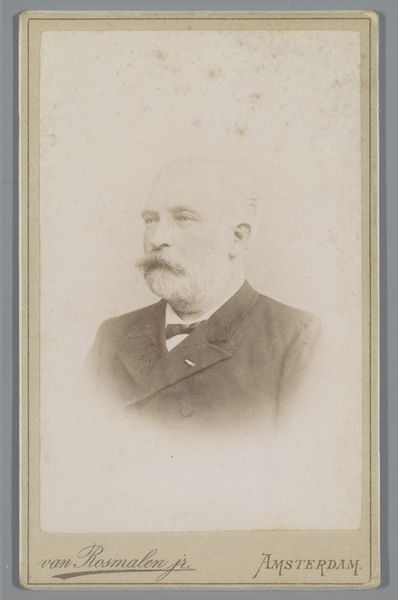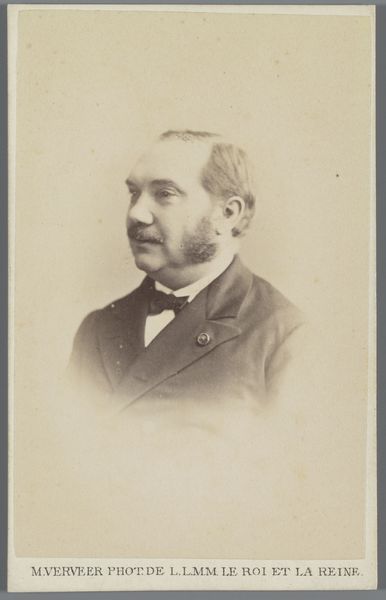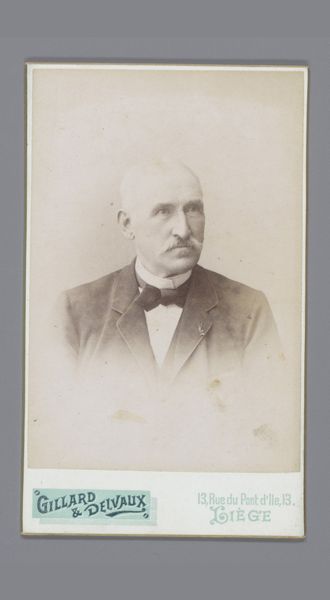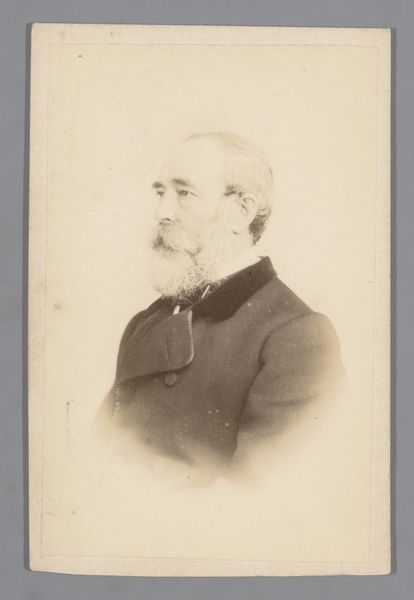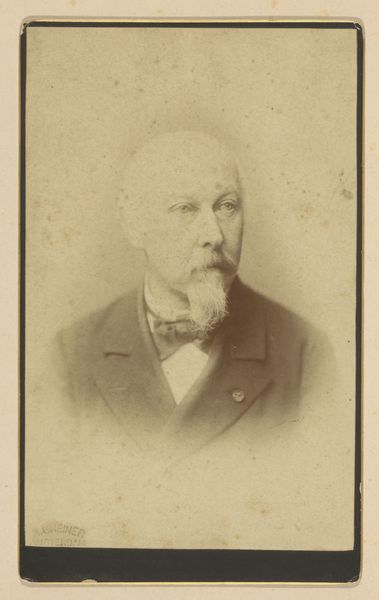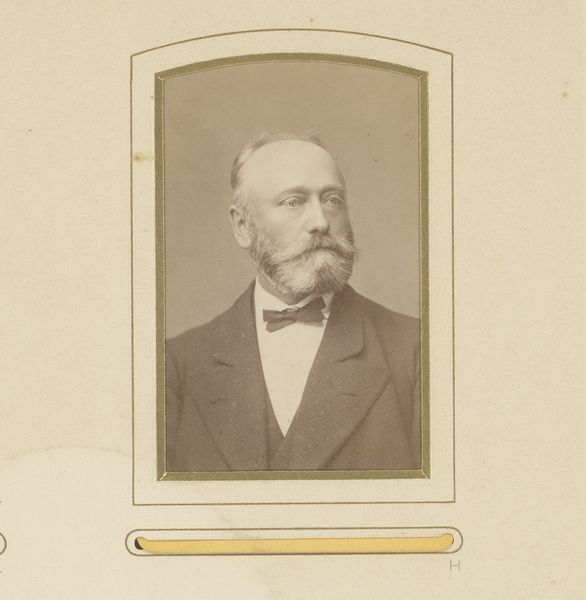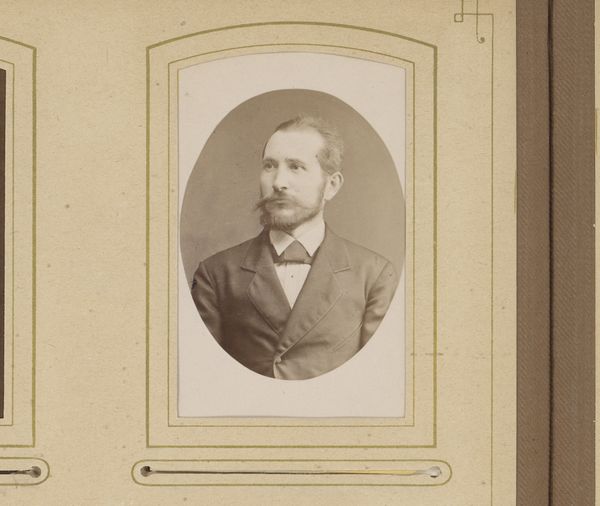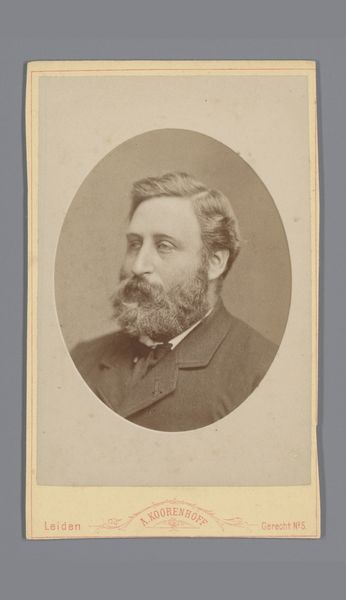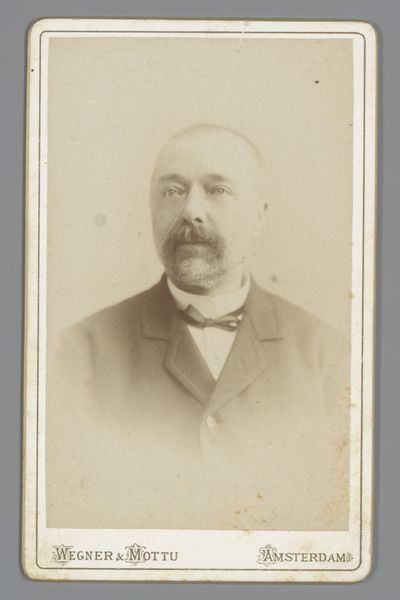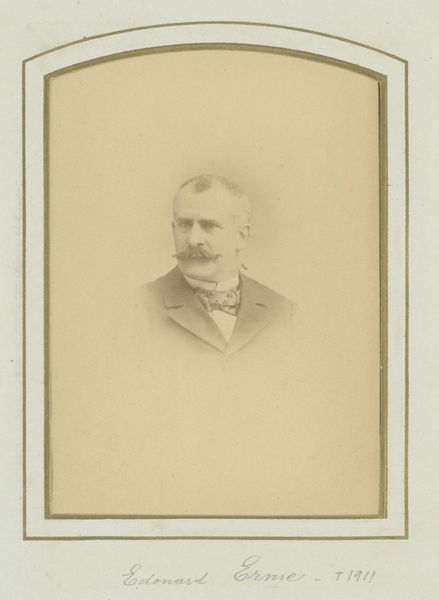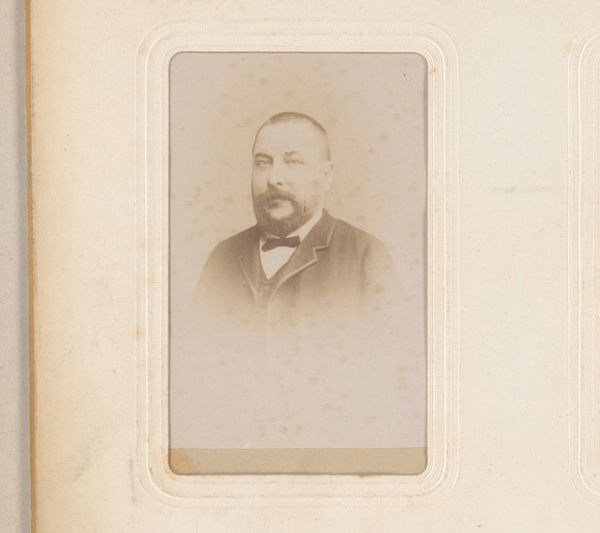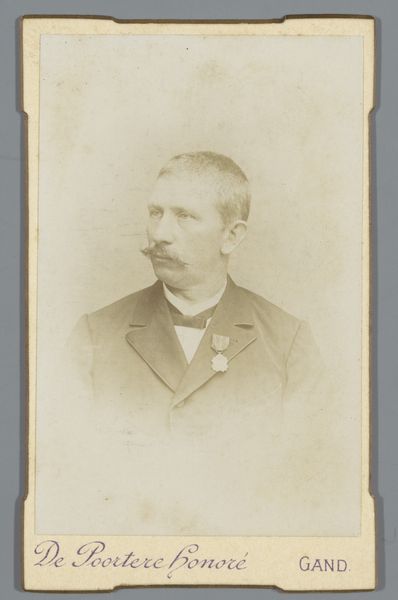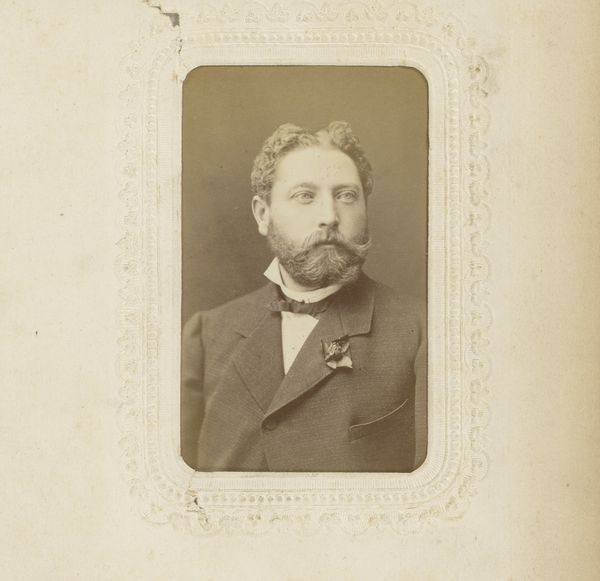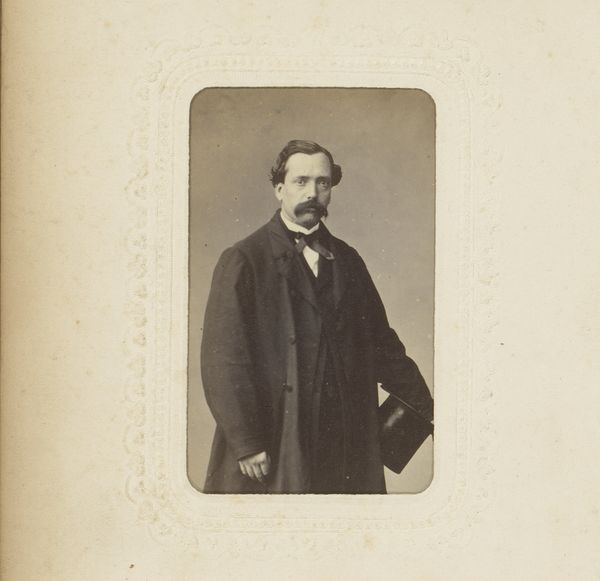
photography, gelatin-silver-print
#
portrait
#
photography
#
gelatin-silver-print
#
realism
Dimensions: height 138 mm, width 95 mm
Copyright: Rijks Museum: Open Domain
Herman van der Worp created this portrait of a man using photographic materials and processes. The sepia tone and mounting style suggest this image was made using albumen prints, a popular method in the late 19th century. To produce an albumen print, paper was coated with albumen from egg whites, then sensitized with silver nitrate. This created a surface that would capture a photographic image when exposed to light through a negative. The resulting print would then be mounted on card stock like this one to give it stability. The final image is the result of a complex interplay between chemistry, light, and skilled labor. While photography democratized portraiture, making it more accessible, the process still required technical expertise and access to specialized materials. The very act of creating this photograph involved a division of labor, reflective of larger social and economic structures. Considering the materiality and the making of this portrait reminds us that all art objects are embedded in specific historical and cultural contexts.
Comments
No comments
Be the first to comment and join the conversation on the ultimate creative platform.
